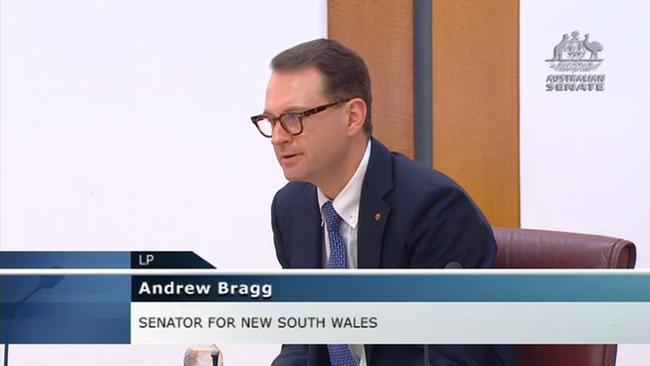Afterpay, Zip to face new parliamentary probe into buy now, pay later
A government-led committee has called for a fresh inquiry into Australia’s lucrative buy now, pay later industry.

Australian buy now, pay later providers including Zip and Afterpay are set to be subject to a new parliamentary inquiry, after the financial services committee said consumers could still be facing significant risks in using the services.
The Liberal-National dominated committee’s report into ’Mobile Payment and Digital Wallet Financial Services’, released on Thursday, found that buy now, pay later services are still largely unregulated compared to other credit products. An industry-wide Code of Practice, drafted with the help of Australian financial services advocate AFIA, came into effect in March 2021.
The committee said it is concerned the buy now, pay later industry — like the broader payments system — is changing rapidly, with new entrants and new products being regularly launched in Australia.
It found that some merchants slugged fees from BNPL providers of up to six per cent or more of the value of a transaction.

“The committee believes a parliamentary inquiry into this space is warranted early in the next parliament, starting not later than 18 months after the Code of Practice came into effect, to investigate issues related to consumer protections, the impact of BNPL services on other sectors, and fees and transparency related to the provision of BNPL products, among other issues,” the committee said.
In March, eight of Australia’s largest BNPL companies – Afterpay, Zip, Openpay, Klarna, Humm, Latitude, Payright, and Brighte – became subject to the self-regulatory Code of Practice, which placed a cap on late fees and raised the minimum age of users to 18 years.
Australia’s buy now, pay later players have already been the subject of multiple inquiries, and Liberal senator Andrew Bragg said in dissenting comments that a further BNPL review was not needed.
“The evidence received by this committee does not support a further review of the BNPL sector. The BNPL sector has been scrutinised by numerous government agencies and Parliamentary committees since its emergence,” he said.
Labor also dissented, describing the calls for a fresh inquiry “vague” and ”unnecessarily obtuse”.
“Industry self-regulation via the BNPL Industry Code of Practice has been a reasonable approach to date as the sector developed and matured,” the Labor committee members said in a statement.

“Industry self-regulation is unlikely to be appropriate forever, and there is a prima facie and growing case for fit-for-purpose regulation of the BNPL sector to entrench consumer protections, ensure credit providers are placed on a fair regulatory playing field, and promote competition and a reduction in fees.
“This should be the subject of a focused inquiry in the next term of parliament and it would have been preferable for the committee to say so directly.”
In a statement, Afterpay said: “We look forward to ongoing engagement with stakeholders to ensure that the Code remains relevant and fit-for-purpose.
“Since the BNPL Code came into effect, the BNPL industry has also become subject to the Design and Distribution Obligations, which ensure that consumers are being sold products which are suitable. Afterpay has strongly supported this new regime, as it is focused on delivering good customer outcomes – something that it has been dedicated to from the beginning.”
The committee in its report also called for a consumer watchdog investigation into tech giant Apple’s restriction on the use of NFC for payments, which it said could be stifling innovation.
It recommended an ACCC probe into Apple’s restrictions on direct third-party access to iPhone chips that enable mobile payments, and said an inquiry should consider consumer harms and benefits; the impact on competition and innovation; the extent to which similar practices exist in other sectors and industries; and whether developers have practical and viable alternatives to using Apple Pay to process mobile payments.
Labor also dissented on that recommendation, writing that “the presumption of Parliament and the regulators should be in favour of open access regimes on reasonable commercial terms to maximise competition and innovation, and it should then be up to Apple or any other handset manufacturer to argue why they should be an exception.
“We consider that parliament should clearly favour a presumption of competition and open access regimes, and that this would be the correct starting point for the work of agencies including the ACCC.”




To join the conversation, please log in. Don't have an account? Register
Join the conversation, you are commenting as Logout